How I came to understand that having a hearing loss made me a super reader of nonverbal cues.
By Doug Guod
I had a complicated childhood, with something like nine surgeries before I was 3 years old. One of the issues is that I was born with flat eustachian tubes that could not drain properly, causing horrible ear infections and early hearing loss.
Doug Guod has performed in a variety of bands and cover bands since he was a teen.
There was an experimental procedure back then that called for inserting metal tubes into my baby ears. When they were removed, they left behind severe scarring inside my ear canals, and it did not heal my eustachian tube problems. I was unable to understand and produce certain sounds correctly, so I worked with a speech therapist, but my hearing was already mildly damaged.
Let’s fast forward past kindergarten through grade 12 (aka difficult formative years) and jump straight to early adulthood.
Through the years of feeling like an outcast and a weirdo, the only refuge I could find at the time seemed to be with other weirdos like myself. Most of the time these types were naturally drawn to the arts such as music, poetry, and painting, etc.
It was only through the arts that I felt like I could truly connect with other people, by sharing my passion for music, especially heavy metal! This was the only kind of music that I could understand properly, believe it or not. And there were many other things that I found inspiring and just flat out cool about heavy metal!
While many people assume my hearing loss is a direct result of my playing music, what makes my story a bit bizarre is that I was actually half deaf before I started playing music. And then my progressive hearing loss accelerated rapidly while I was playing in bands.
Paying Tribute
Since I was a teen, I have been in bands left and right. I joined existing groups and founded my own projects. My claim to fame, such as it is, is being in top-tier tribute bands regionally. We played venues in front of hundreds and got paid thousands of dollars, enough to quit our jobs (at least temporarily!). I had a lot of meaningful experiences singing in a Led Zeppelin tribute band, and then singing in a Guns N’ Roses tribute band, then coming back to that same Led Zeppelin tribute band on guitar emulating Jimmy Page (my second all-time favorite guitarist).
The tribute bands included those dedicated to the music of Led Zeppelin and Guns N’ Roses.
There were times when we performed “Stairway to Heaven” or “Sweet Child O’ Mine” and I watched tears stream down the happy faces of our audience. I take pride in having been able to bring so much happiness to people through music.
However, it was around that time that I started noticing my inability to hear myself and others onstage. I kept having to make the sound guy crank up my monitor mix. I tried a super expensive in-ear monitor system, but this didn’t work well with my hearing aids. It quickly got to the point where I was just guessing my notes.
It started causing a lot of stress and anxiety—and the worst part about it is that I felt like I couldn’t share my issues openly, especially not among my bandmates who were supposedly my closest friends. They were also my business partners, and I didn’t want to be responsible for their failure. I could barely handle my own failures let alone take on the broken dreams of my best friends.
Luckily, I was able to perform well enough by muscle memory (and other little tricks) so it was hardly noticeable to the audience or, more importantly, to my bandmates. In this way I was able to continue on for quite a while though I knew my hearing loss was progressing beyond my control. It was time to face the music.
Then suddenly, as if a dark veil had been lifted, things that had been right in front of me all along became clearer.
I realized I could see visual cues about what was happening with the music onstage to help me perform. I could see the intricacies of the lead guitarist’s pick slide that always seemed to bring the band back into the next part after his solo was over. I could pick out the not-so-subtle variations of the way the drummer would hit the snare to emphasize the rhythm or pound on the cymbals to signify the down beat.
I could see how the bassist grooved in the pocket with his head bobbing in time, and sometimes even those weirder bodily fluctuations that accompanied said head bobs would help me catch back up when I was falling behind. There were distinct nuances in the movements of the mouth during vocals. If I was a bit off on the timing, I could match it up a lot better visually than aurally.
Visual Cues
Then I realized that I had actually been doing this stuff all the way back when I first was learning how to play music. I realized I had been watching the way a singer’s lips moved for emphasis on certain syllables and the way the throat would shift during certain high notes. I had learned how to sing like Robert Plant and Axl Rose by doing this. I even learned how to play guitar just by watching the heavy, down-picking style of James Hetfield and the fret hand of Tony Iommi as he would play his power chords higher up on the neck for more body.
I had studied the dexterous finger movements of Jimmy Page as he ripped off solos that were somehow simultaneously sloppy and perfect. I was eyewitness to Angus Young riffing like a wild schoolboy while spinning around in circles on the ground. I had learned how to fingerboard tap by watching Eddie Van Halen—that is, after he finally decided to turn and face the audience.
Class was in session with Zakk Wylde when he demonstrated his over-the-top squealing pinch harmonic technique. I was schooled by Dimebag Darrell as he dive-bombed like a madman with his whammy bar. I took advanced courses in shred by watching live videos of Joe Satriani and Yngwie. All right, you get the point. My best teachers had always been my eyes, not my ears. Go figure!
There were deeper ways that I was affected. I started to see how my disability basically forced me to become hyper-aware of the details in facial expressions, and this continues to help me appreciate the importance of body language and all its rich complexities. It made me pay closer attention to other people’s feelings, which has greatly increased my own self-awareness and emotional intelligence.
Maybe it wasn’t all bad to be dealing with this hearing loss, I thought. There could be more advantages I have been missing out on all this time. Ironically, it all came down to tuning in to myself more.
New Mindset
When I finally got past my denial stage and officially reached out for help with my hearing problems, I was already profoundly to severely deaf in both ears. I had been using hearing aids up to that point since my early 20s just as a way to be able to have simple conversations with people, but now I was starting to have extreme trouble understanding speech.
I spent a good dozen or so years in denial about my progressive hearing loss because I did not want to give up on my dreams of becoming a real-life rock star. And I didn’t want to face the fact that I was losing something that made my life have meaning. My sense of purpose became so tied in with my music that it made me feel like without it I would be worthless.
That’s when I knew I needed to change my mindset. I needed to find a new way to channel my creative abilities that didn’t involve my ears. I began writing extensively and also picked up an old passion from my formative years: illustrating comic books.
Being able to shift my focus away from my disability and into an area of exceptional ability definitely helped my mental health. It helped me regain a sense of worth. Although, it's kind of comical that switching from the musician's struggle over to the starving artist did not get rid of ALL my problems, no doubt. It did, however, help me regain a new sense of worth as I rebuilt my self-identity. Not to say that someone needs to do something creative or have special talents to have any worth, of course.
Doug realized that his hearing loss meant he relied more on visual cues, becoming super-attuned to facial expressions and body language both on and offstage.
One of the biggest lessons I have been able to learn from all this is that we are responsible for finding meaning and purpose in our own lives. It’s up to us, and no one else.
I still deal with anxiety and depression in social situations. My hope is that people with hearing loss can have accommodations, such as captioning, without drawing too much attention, so that we don’t feel like we are a burden. I am also still searching for my tribe, others who are struggling with losing their ability to play and hear music. I want to connect with those who also feel like they are grieving the loss of one of their physical senses.
I am lucky to have made some supportive friends along the way. My family is also supportive, and my girlfriend has been especially great and has even started learning sign language with me. Many of them have told me that I should share my story more widely, not only to help my loved ones understand what I’m going through but also to help inspire others, so this is a first step.
It didn't really dawn on me until writing this that I could possibly be an advocate myself. I guess I thought there usually needed to be some kind of huge success story behind it, but just realizing that I'm still here and haven't let this destroy me is kind of a success story in and of itself. In fact, I have started to see the many ways I have been able to turn my disability into a superpower!
It reminds me of how Tony Iommi, the guitarist for Black Sabbath, chopped three of his fret hand fingers off in an industrial accident when he was 17, and he could have let that become the end of his musical career. But instead, he chose to use leather strips and thimbles to fashion customized fingertips. He went on not only to become a successful rock star, but also to forge a completely new form of music that became an inspiration to a whole generation of metalheads! Now that is turning a disability into a superpower. (And it’s also why he is my favorite guitarist of all time, in case you were wondering who is ahead of Jimmy Page.)
One last thing I would like to say for all the skeptics still out there (like I was for so long) who may be dealing with hearing loss or the loss of the ability to play, perform, and/or enjoy music: You are not alone.
I was very surprised, when I finally researched this issue, to learn that there are a lot of successful musicians who have had to deal with similar obstacles. Some are even rockstar heroes to me like Pete Townshend from The Who and Brian Johnson, the singer of AC/DC. How weird and ironic is it that Brian Johnson was replaced after his forced early retirement by none other than Axl Rose? How extra cool is it that due to recent advancements in in-ear monitors and hearing aid technology, Johnson has been able to return to the stage again with his band?
This is why it is very important to stay up to date with the latest technology. Hearing Health Foundation (HHF) is doing cutting-edge research into the process of regrowing sensory hair cells inside the cochlea, which could one day help regain lost hearing. There are other advancements in hearing devices such as hearing aids and cochlear implants that could positively impact the quality of life for those who are suffering.
So, just remember there is hope for the future. There is help out there, and thanks to organizations like HHF we know better about where to go for support and what options are available for us. You just have to be willing to reach out.
Doug Guod lives in Ohio. This was published in the Spring 2024 issue of Hearing Health magazine.

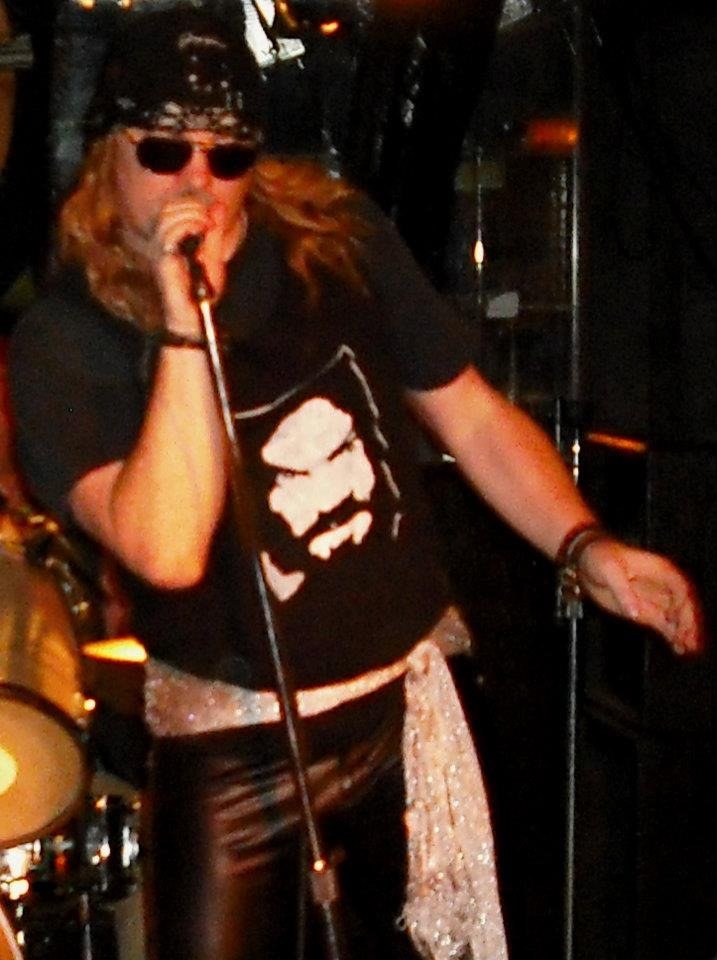

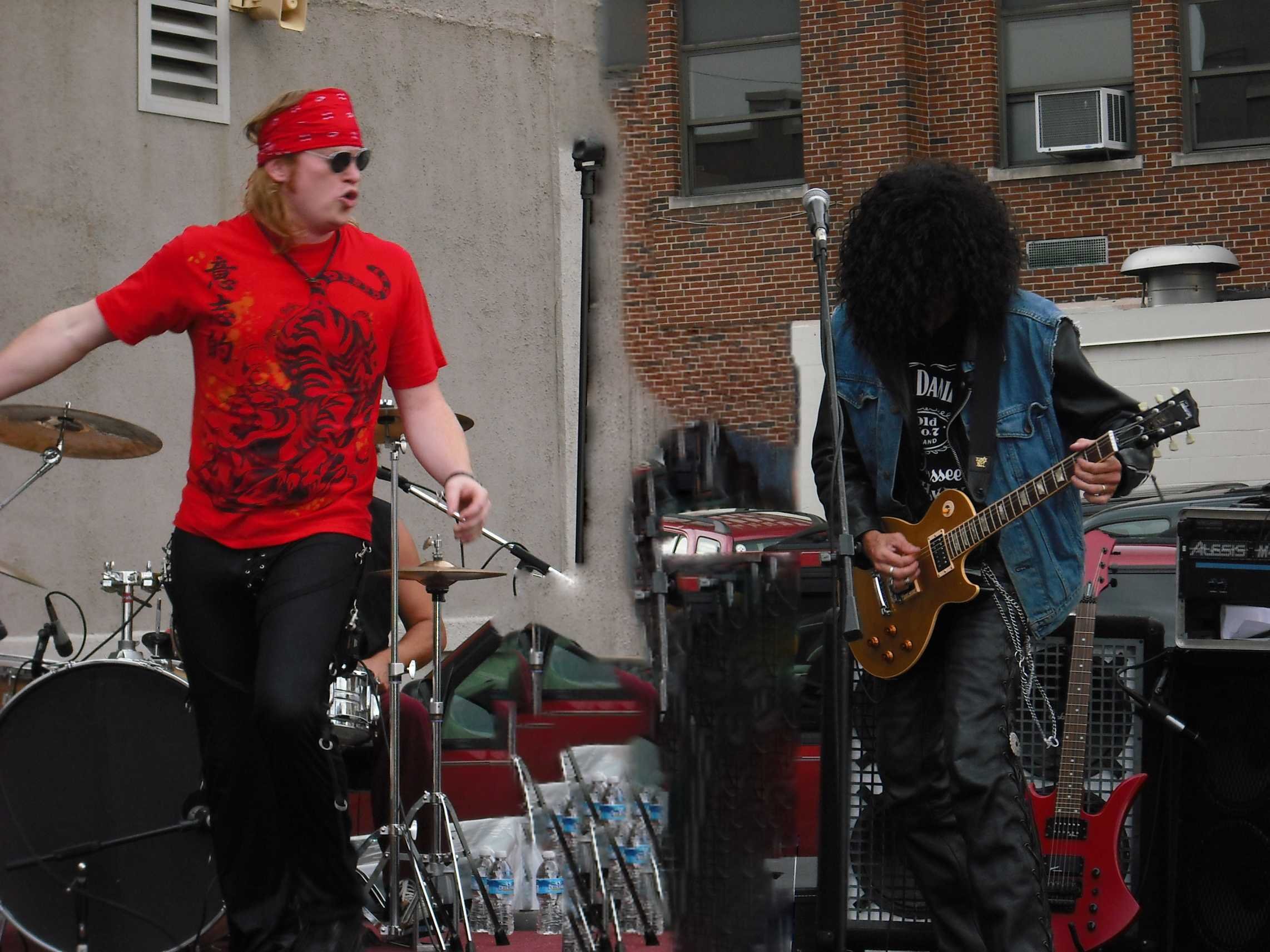
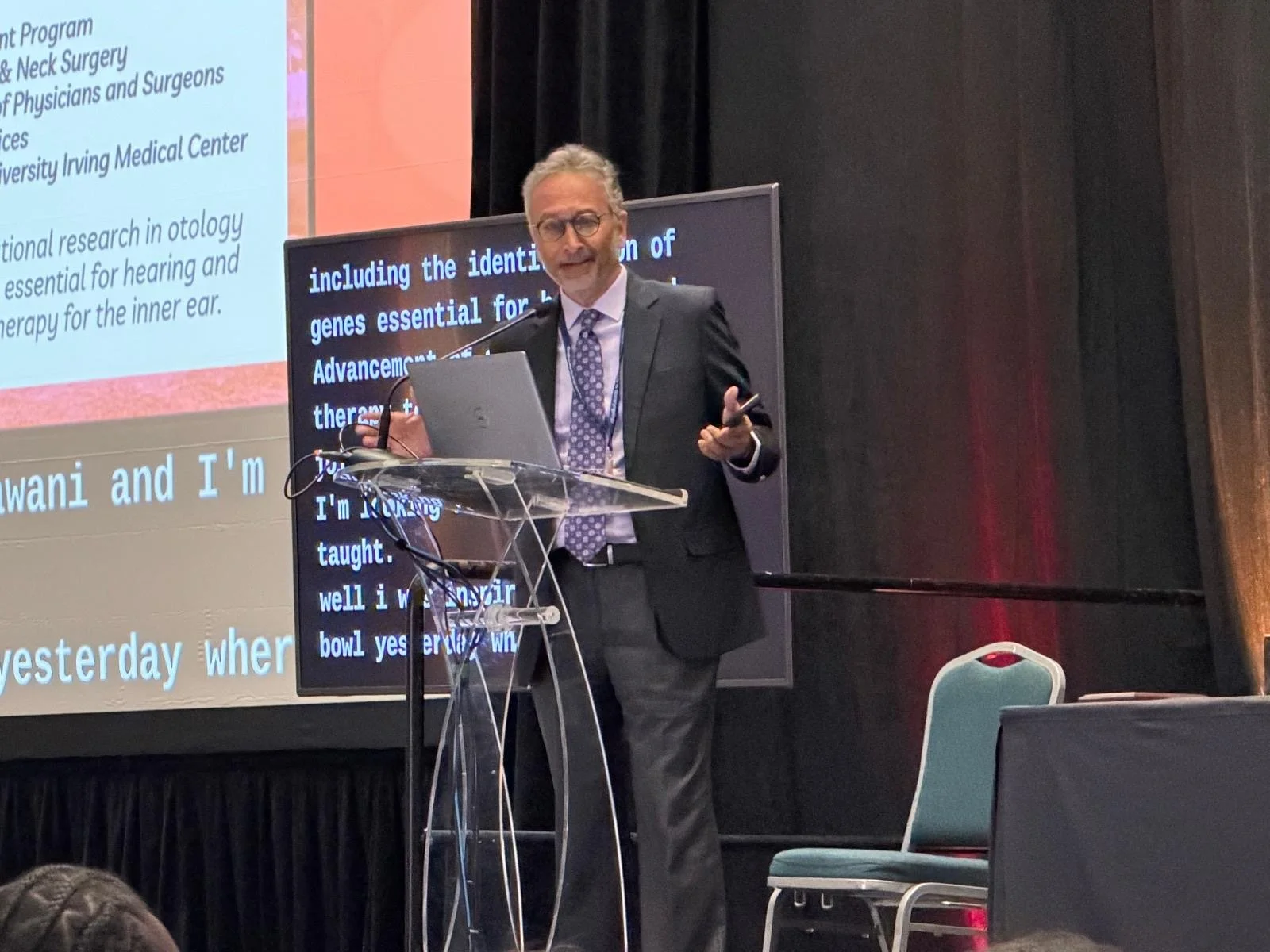
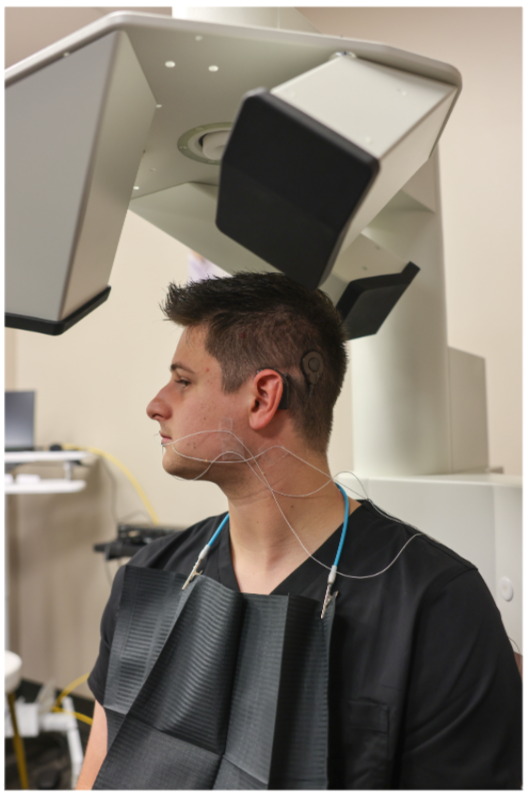

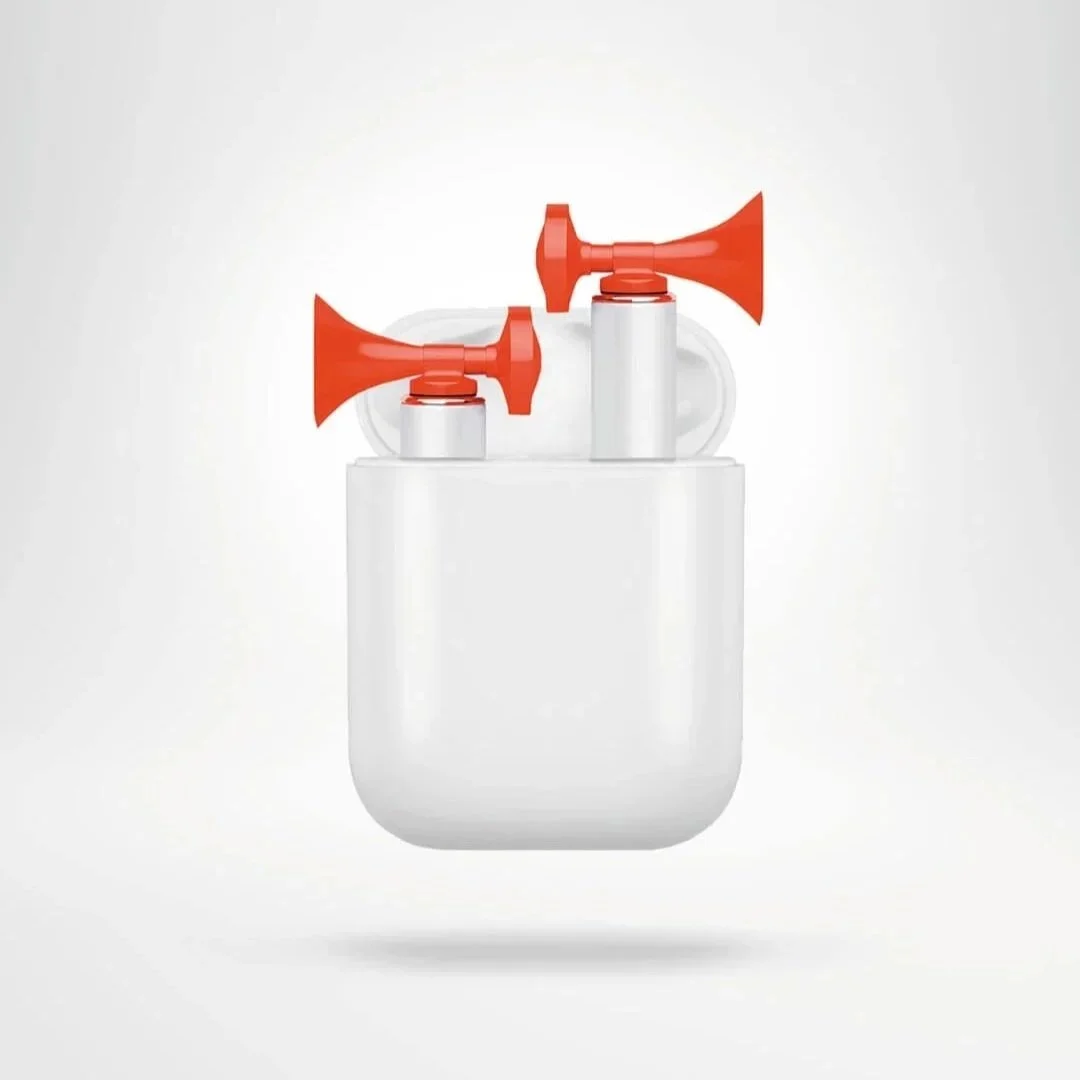

Hearing contributes directly to independence, confidence, and how actively people participate in daily routines, and regular hearing checks deserve the same kind of attention people already give to routine doctor or dental visits.